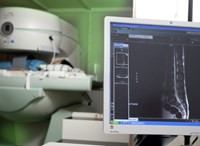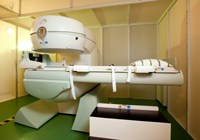
Subscribe & Follow
#AfricaMonth
In the news
Life Healthcare invests in its Orthopaedic Hospital

All specialised units are integrated into a centralised online system which has aims to achieve better efficiency and information flow.
"The digital shift at the hospital has revolutionised our response time and accuracy of patient diagnosis. A patient can, for example, go for magnetic resonance imaging (MRI) at the radiology unit with the new G-scan and within seconds I'll have the images on my office computer," says Dr Pradeep Makan, a specialist orthopaedic surgeon based at Life Orthopaedic Hospital in Cape Town.
In-depth and accurate analysis
The G-scan, the first open, tilting MRI scanner, allows for an image to be taken in the position where most symptoms occur, which is different to the traditional MRI scanner where the patient has to lie down, meaning symptoms in backs, knees and joints often go unnoticed. Doctors can now make a more in-depth and accurate analysis of the problem area.
The G-scan also offers patients psychological and emotional relief. With the traditional MRI scanner, patients have to lie down in a tunnel-like device in a dark room, which is widely reported to induce claustrophobia and anxiety in some individuals. With the G-scan, patients can stand while the magnets scan only the area affected, which means they are no longer enclosed in a small space.
The G-scan, by being on site, encourages close communication and open dialogue between the doctors from different orthopaedic subspecialties and radiologists.

"With cross-referral there is a focus of super-specialisation happening at this hospital, which means we have a pool of experts at our disposal. Naturally, this has extended to academia, as we have a close relationship with the University of Cape Town's Orthopaedic Department. We run a programme where orthopaedic registrars from the university join us in order to super-specialise in their chosen field, and simultaneously, add to our knowledge base," adds Makan.
Shift towards specialities and sub-specialities
The hospital is on par with global standards, as there is the gradual shift towards specialities and sub-specialities in the field of orthopaedics. According to Dr Garth Grobler, specialist orthopaedic surgeon at the hospital, this is because the nature of society is changing, which will lead to higher life expectancy and more demands on quality of life.
"In South Africa, the most common health complaint is muscular skeletal pain. This means that we need to harness the advanced medical technology available to us, especially within a digital landscape, in the medical sphere, because, with an increase in bone and joint pathology imminent in the future, we are going to need better and more effective patient care," Grobler advises.









